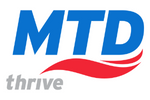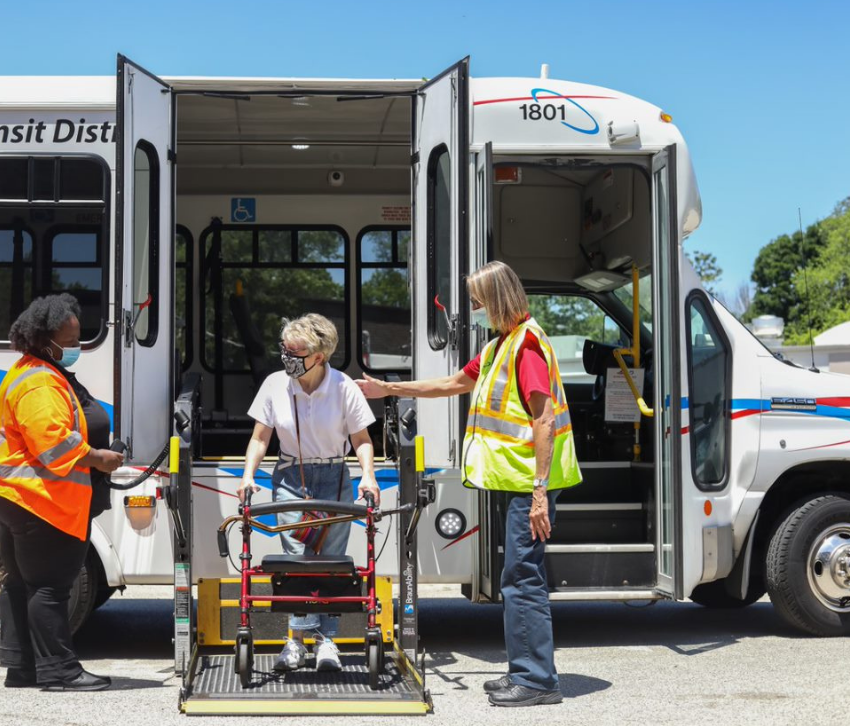Champaign-Urbana Mass Transit District: A long-time leader in public transit accessibility


The Client:
The Champaign-Urbana Mass Transit District (MTD) is a public transit system that provides bus service to millions of riders per year in the eastern Illinois cities of Champaign, Urbana and Savoy, as well as across the University of Illinois campus.
Its website serves not only as a source for general information, but also provides its passengers with tools for real-time route tracking and more.
The Challenge:
“Accessibility has been important at Champaign-Urbana MTD for a long, long time,” said Ryan Blackman, software development manager. “Back in 1984, we were the first district in the nation to have an entirely accessible bus fleet. We were the first to buy a low-floor bus. And the University of Illinois has been a long-time leader in accessibility, too, so it’s always been a priority.”
When MTD worked to build a new site in 2018, they made digital accessibility a top-level goal. “We worked with a local consultant for design and were assured that we’d have an accessible site as well,” Blackman said.
However, shortly after launch, feedback indicated that the site was far less accessible than the team at MTD had been led to believe. “It was frustrating, because we’d spent a lot of time on it and we’d identified accessibility as a priority – and in the end, we weren’t able to adequately provide that.”
Blackman recognized that there was more work that needed to be done – and quickly. “We proactively set out to find an industry leader who could help us with our site’s accessibility. We realized that maybe local consultants weren’t good enough. We needed true expertise.”
The Solution:
When Blackman was searching for an accessibility partner, Perkins Access stood out. “What I initially found appealing about Perkins Access – and what ultimately caused us to reach out – was the association with Perkins School for the Blind,” he said. “But it was also clear that they offered a human component that was missing from other vendors. It was more than just automated testing.”
“We’d already run all the automated tests on our site, and it didn’t bring us much value. And I can do that on my own,” Blackman pointed out. “What set Perkins Access apart was the native user testing. I thought that if we were going to spend more time, effort and money to do accessibility consulting, we should ensure that we’d not only be meeting the letter of the law, but also creating a site that’s practical and usable for people with disabilities.”
Once MTD decided to partner with Perkins Access, the teams dove in together – as the Access team identified issues with the site, Blackman worked to resolve them.
“The biggest surprise was an issue with the way the main navigation was built. I’d spent a lot of time building that with accessibility in mind – and it turns out that it was technically accessible, but not as usable as it could have been,” Blackman said. “To be honest, my first reaction was ‘Are you kidding me?’ because I’d worked hard on doing it in what I’d been told was the right way. But then we fixed it, and I realized it was better. And, more importantly, why it was better.”
Blackman and the Perkins Access team were able to work together quickly to resolve most of the issues. “I’m not an accessibility expert, but I’m not a novice – so, for most of the things they found, I was able to say, ‘That makes sense. I’ll fix that.’ And they were always there for guidance and clarification,” Blackman said. “I really enjoyed working with Perkins Access. They’re genuine experts who know way more than I do on a technical level.”
In an effort to help the larger MTD team deepen its understanding of digital accessibility, Blackman also took advantage of the training Perkins Access offers. “While we were working on the audit, I scheduled a number of trainings for our whole staff – two sessions for developers, as well as sessions focused on authoring accessible content, creating accessible multimedia and design, and testing for accessibility,” he said. “They did a really nice job with making the training feel relevant. For example, in the developer training, they took specific issues on our site, with real code examples, and used those as part of the lesson. From there, our devs were able to take the training and run with it.”
And the training isn’t just for current employees. “I love that I get the recorded training content afterward so I can put it into our internal training program for new staff,” Blackman said. “When I’m onboarding new developers, I’ll have them watch all of these – it makes it really easy to train people and get them up to speed on our culture of accessibility.”
“This has been on my radar for a long time, but it’s been nice to get operations, marketing, and other departments on board to see that it’s not just something that developers have to be involved in. Accessibility has an impact everywhere – from how you’re writing copy to designing graphics and more.”
The Outcome:
Blackman now feels a lot more confident about the accessibility of MTD’s site. “A website is a living thing and accessibility is an ongoing effort, but it’s nice to know that a team with real expertise has gone through it with a fine-tooth comb, and we can feel good that we’ve made a really solid effort to make this site as accessible as possible,” he said.
“I am glad we found Perkins Access – it has led to a much better website and a better understanding of accessibility within MTD. The path getting here might not have been ideal, but I’m very happy with the outcome. This has been a great experience.”
